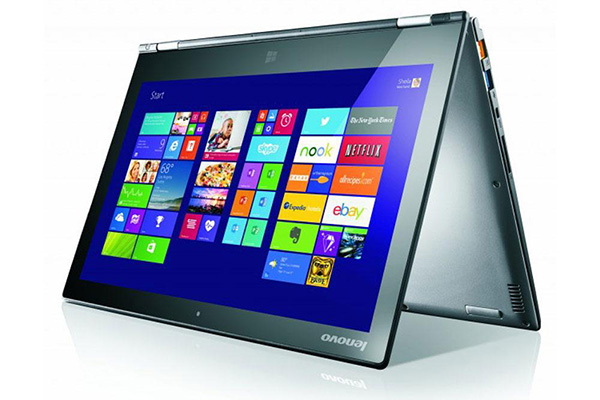Lenovo snagged in Windows 10 bloatware scandal
Company reneges on crapware-cutting promise


Lenovo has come in for criticism once again, the firm has been caught using a feature to ensure that its software stays present on a user's machine, even if they have done a clean install of the operating system.
The problem affects laptops and desktops made by the company between October 2014 and April of this year. Lenovo used a feature called Windows Platform Binary Table (WPBT). This feature is primarily an anti-theft measure supported by Microsoft but the firm has used the same measure to install a number of applications, not necessarily those to prevent theft.
The behaviour of laptops was brought to light by a poster on an Ars Technica forum. The rootkit-like installed, names Lenovo Service Engine (LSE), installs an additional program that itself updates drivers, firmware, and other pre-installed apps.
LSE resides on the firmware of the machine and replaces a core Windows file named Autchk.exe with its own version; this creates, another two files LenovoUpdate.exe and LenovoCheck.exe, which then allow further files to be downloaded once the machine connects to the internet.
However, the service engine contains a security vulnerability that puts user's systems at risk. According to a security bulletin issued by the company, LSE could be exploited by hackers to infect machines. The patch has to be installed manually.
The problem affects a large number of laptops and desktops including those from its Yoga and Flex running Windows 7, 8 and 8.1. Its Think-branded business machines are not affected.
In a statement to the press, Lenovo said that it had the problem bought to its attention by a security researcher and this prompted the company to issue an update.
Get the ITPro daily newsletter
Sign up today and you will receive a free copy of our Future Focus 2025 report - the leading guidance on AI, cybersecurity and other IT challenges as per 700+ senior executives
"Starting in June, the new BIOS firmware has been installed on all newly manufactured Lenovo consumer notebook and desktop systems," the firm said.
"It is strongly recommended that customers update their systems with the new BIOS firmware which disables and or removes this feature."
This is not the first time Lenovo has been caught installing software that posed a risk to users. In March this year, it was found that some laptops by the manufacturer came pre-installed with Superfish adware that could potentially allow attackers to access encrypted data when it inserted visual search results into a browser.

Jane McCallion is Managing Editor of ITPro and ChannelPro, specializing in data centers, enterprise IT infrastructure, and cybersecurity. Before becoming Managing Editor, she held the role of Deputy Editor and, prior to that, Features Editor, managing a pool of freelance and internal writers, while continuing to specialize in enterprise IT infrastructure, and business strategy.
Prior to joining ITPro, Jane was a freelance business journalist writing as both Jane McCallion and Jane Bordenave for titles such as European CEO, World Finance, and Business Excellence Magazine.
-
 Should AI PCs be part of your next hardware refresh?
Should AI PCs be part of your next hardware refresh?AI PCs are fast becoming a business staple and a surefire way to future-proof your business
By Bobby Hellard Published
-
 Westcon-Comstor and Vectra AI launch brace of new channel initiatives
Westcon-Comstor and Vectra AI launch brace of new channel initiativesNews Westcon-Comstor and Vectra AI have announced the launch of two new channel growth initiatives focused on the managed security service provider (MSSP) space and AWS Marketplace.
By Daniel Todd Published